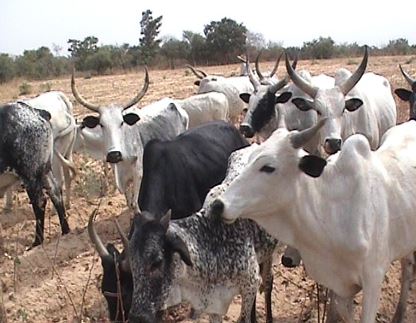
The Much awaited respite for people living with HIV may have come at last, as scientists in Bangkok, for the first time, developed an experimental vaccine that could prevent HIV infections.
However, whether such a vaccine would work against other strains in Africa or elsewhere in the world is still unknown as the study was conducted with strains of HIV common in Thailand.
Already, the World Health Organization (WHO) and the U.N. Agency UNAIDS has described results as instilling new hope in the field of HIV vaccine research.
The said vaccine, according to Bangkok researchers which is a combination of two previously unsuccessful vaccines cut the risk of becoming infected with HIV by more than 31 per cent in the world’s largest AIDS vaccine trial of more than 16,000 volunteers in Thailand.
Reacting to the discovery, in a telephone chat with Vanguard, the Head of Haematology Unit at the Lagos University Teaching Hospital (LUTH), a Consultant Haematology, Dr. Suleiman Akanmu, who welcomed the development also expressed the fear that the vaccine may not work in Nigeria if the prevalence virus strains are not the same with the one in Nigeria.
According to Akanmu, “This is what we have been looking forward for. That somebody is claiming the ability to stop transmission of the virus it’s a little but big achievement”
But it will make more difference if we can have both a vaccine that can prevent the spread and also a scientific breakthrough that can serve as therapeutic to the virus”
On how the latest discovery can impact on Nigerians living with the virus, he explained that it can only be possible if the prevalence virus strains in Thailand are the same strains that we have in Nigeria.”
Akanmu who noted that if the ability of transmission or prevention of transmission works as claimed by the researchers it would reduce hosts of the virus. But it is still a moderate success but a big achievement so far in history”.
Reacting to the marvellous discovery, Col. Jerome Kim who led the study said even though the benefit is modest, it is the first evidence that could have a safe and effective preventive vaccine.
The study tested the two-vaccine combination in a “prime-boost” approach, in which the first one primes the immune system to attack HIV and the second one strengthens the response.
They are ALVAC, from Sanofi Pasteur, the vaccine division of French drugmaker Sanofi-Aventis; and AIDSVAX, originally developed by VaxGen Inc. and now held by Global Solutions for Infectious Diseases, a nonprofit founded by some former VaxGen employees.
ALVAC uses canarypox, a bird virus altered so it can’t cause human disease, to ferry synthetic versions of three HIV genes into the body. AIDSVAX contains a genetically engineered version of a protein on HIV’s surface. The vaccines are not made from whole virus — dead or alive –and cannot cause HIV.
Neither vaccine in the study prevented HIV infection when tested individually in earlier trials, and dozens of scientists had called the new one futile when it began in 2003.
The study tested the combo in HIV-negative Thai men and women aged 18 to 30 at average risk of becoming infected. Half received four “priming” doses of ALVAC and two “boost” doses of AIDSVAX over six months. The others received dummy shots. No one knew who got what until the study ended.
All were given condoms, counseling and treatment for any sexually transmitted infections, and were tested every six months for HIV.
Any who became infected were given free treatment with antiviral medicines.
Participants were followed for three years after vaccination ended.
The results: New infections occurred in 51 of the 8,197given vaccine and in 74 of the 8,198 who received dummy shots. That worked out to a 31 percent lower risk of infection for the vaccine group. Two of the infected participants who received the placebo died.
The vaccine had no effect on levels of HIV in the blood for those who did become infected. That had been another goal of the study — seeing whether the vaccine could limit damage to the immune system and help keep infected people from developing full-blown AIDS.
The Director of National Institute of Allergy and Infectious Diseases in Thailand, Dr. Anthony Fauci, warned that this is “not the end of the road,” but said he was surprised and very pleased by the outcome.
The Thailand Ministry of Public Health conducted the study, which used strains of HIV common in Thailand. Whether such a vaccine would work against other strains in the U.S., Africa or elsewhere in the world is unknown, scientists stressed.
Even a marginally helpful vaccine could have a big impact. Every day, 7,500 people worldwide are newly infected with HIV; 2million died of AIDS in 2007, UNAIDS estimates.
Vanguard
JOIN THE FASTEST GROWING NIGERIAN FORUM




Wow! This is awesome, first time ever in the history.keep it up.We will be looking forward for the cure.